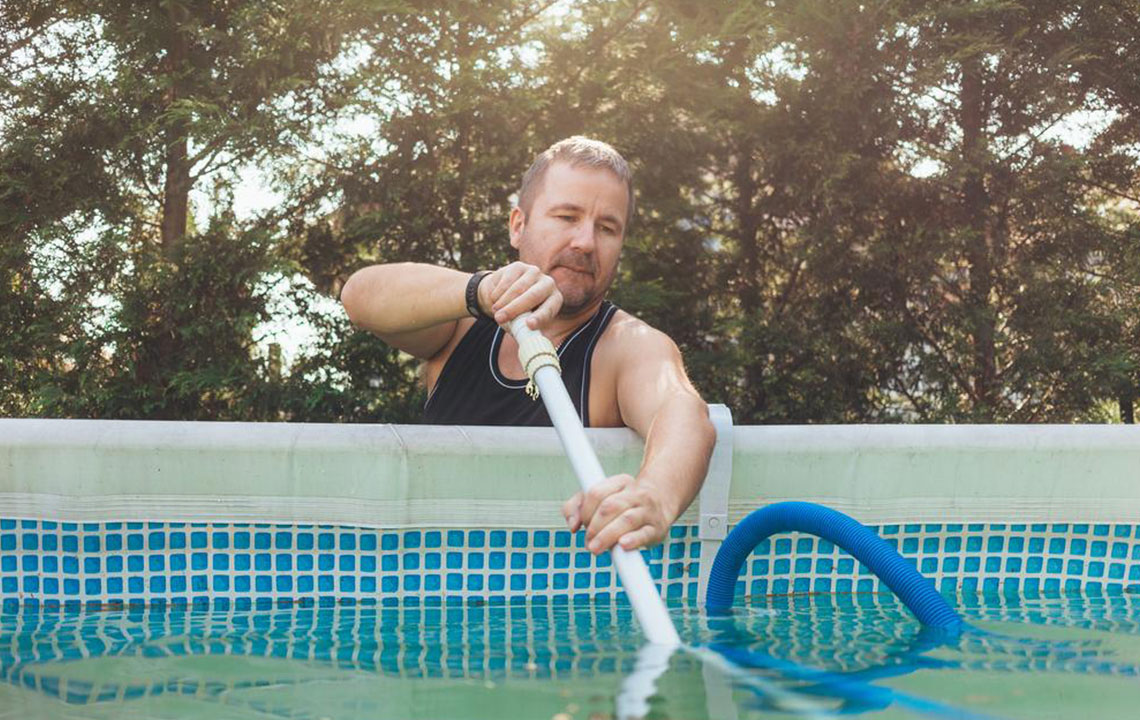How to maintain an above ground pool
Be it summer or winter; above ground pools require regular maintenance. Even though above ground pools are easy to clean and maintain, algae and other pool related problems are difficult to get rid of. Hence if you regularly clean and maintain your above ground pool, then you could avoid the expenses involved in repairing them. Make a schedule and a checklist to cover all the important areas of pool cleaning to make the task a whole lot easier.

Chlorine level: Chlorine prevents algae growth. It is advisable to use chlorine tablets or granular chlorine to maintain the level of chlorine in the water of the above ground pools. Chlorine levels should be between 2.0 to 4.0 as high chlorine levels can be harmful.
Brushing: The advantage of above ground pools is that using a brush to clean it does not cause any scratches. Brush the pool walls and floor once a week to remove any bacteria or prevent unwanted grow.
Vacuum: Vacuuming the pool will keep the water circulating and also capture the dirt and debris present. Unclean pools invite growth of algae and bacteria hence it is necessary to vacuum above ground pools at least once a week.
Skimmer: It can be very advantageous to have a skimmer in an above ground pool. It is the handiest instrument you can have to keep your pool clean. It is efficient and effortless in cleaning and removing the debris that is found floating on the water.
Pumping and filtering: Motion in water stops the growth of the bacteria in the water. This is exactly why pumping and filtering devices are used.The pump will force the water to the filter. The filter will then catch and remove the dirt and debris found in the water. In fact, filters also eliminate microscopic particles. Run the pump and filter for 8-12 hours for the best results.

